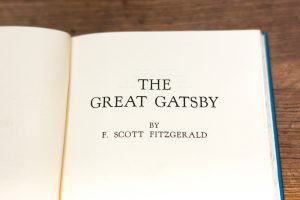5 Things Publishers Look For in Book Proposals | Lex Academic Blog

Commissioning editors in scholarly publishing houses receive hundreds of unsolicited proposals every year. Whilst they generally do not have PhD-level research experience in their subject areas, they are trained to assess the potential of the projects that they are offered. This means that, despite the sheer volume of material that is sent their way, a truly excellent book proposal will always catch their attention, and is likely to be pushed through the peer review process faster. One you have identified the right publisher for your work, you will need to present your research in such a light that it appears outstanding from the perspective of their editors, whose priorities, whilst often appearing somewhat arcane from the outside, are, in fact, relatively straightforward.
1. The proposed title
One of the issues that commissioning editors (and their assistants) deal with on a very regular basis are authors who are unfamiliar with what constitutes an appropriate title for a scholarly book. Whilst ‘trade’ books (i.e., books aimed at a general readership) can afford to have more ‘poetic’ titles, the titles of scholarly books need to include as many keywords as possible, in the interests of search engine optimisation (SEO). This is because librarians and other potential readers track down academic books using keyword searches, and are less likely to find a book that has no keywords in the title. A clean, straightforward title is therefore the first marker of a quality proposal.

2. Project description
From a publisher’s perspective, the very best proposals are clear and succinct from the outset. A book description should not begin with a lengthy preamble on the state of a given field; rather, it should immediately explain what the book is about, how it is distinctive, and the needs that it satisfies. Any other relevant detail can be added once this has been achieved. If a proposal can grab the commissioning editor’s attention, and make its significance clear to a non-subject specialist in the process, it suggests that the finished project will be original and compelling.
Providing detailed chapter outlines, including for the introduction and conclusion, is also key in allowing an editor to assess the book’s overall coherence and significance. This is of particular importance for edited collections, and any texts that include contributions from a number of different authors, as both editors and peer reviewers need to evaluate how the book functions as a whole.
3. Market
Unpalatable as this can be to authors, publishers fundamentally exist to make a profit by selling books. However excellent a text is in an academic sense, if the author cannot make a case for it having a market then a commissioning editor is likely to reject it immediately. Publishers, in other words, will always look for a well-considered rationale for a book’s primary and secondary readership in a proposal. It is worth stating here that, with very few exceptions, scholarly publishers do not expect monographs to attract a wide, non-academic readership (and, indeed, trying to convince them that a book will appeal to a general audience can backfire). They do need to know, however, that they can rely on a solid academic readership, be that researchers, postgraduates, undergraduates or (occasionally) practitioners.

4. Competition
Counterintuitive as this may seem, a publisher does not want to read that no competition for a book exists. The reasoning for this is straightforward: if there are no other books on a similar topic, then it strongly implies that there is no market, and that the book will not sell. Equally, an editor will not look kindly on a proposal that merely denigrates pre-existing work in the field, since it suggests that the author may not have adequately engaged with previous research. What a publisher is really looking for is a sense of what a book’s readership is already buying, even if such texts are not direct competitors; how a proposal relates to published texts on the same subject; and how the proposed book will extend the debate by offering something new and distinctive. Publishers will also want to see some of their own books mentioned, principally because it indicates that a book will be a good fit for the editor’s list.
5. Other information
The latter sections of a book proposal form can tell a publisher a great deal about an author, and whether they would be a successful client. Publishers have targets and deadlines that they need to meet, and often use complex bibliographical systems that require information to be inputted in a certain way and at the correct time. An author who proposes a realistic timetable and word count for their book, who has already considered any rights and permissions issues, and who has a clear idea of the number of illustrations that they will be including, is always appealing. Similarly, a proposal that provides all of the information requested, in a user-friendly format, implies that an author is both organised and considerate.
Ultimately, commissioning editors are always hoping to receive exciting proposals that they can champion. By following the above advice, you can make their day.

Be notified each time we post a new blog article